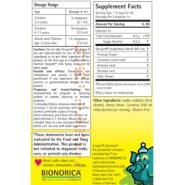Respiratory insufficiency is a general medical term used to categorize any ailment in which the lungs are unable to function properly. Oxygen uptake and carbon dioxide removal, which are normal lung functions, may be inhibited or slowed, resulting in fatigue, breathing difficulty, or even serious health problems such as heart attacks. Many types of respiratory insufficiency, such as asthma and allergies, are quite common. It may be diagnosed at home, by taking vitals such as blood pressure, or it may be diagnosed by cardiologists and other medical professionals. It is recommended that those at risk for developing any types of respiratory insufficiency maintain healthy eating habits, exercise regularly, and avoid smoking, although some ailments may be hereditary.
Some of the most common types of respiratory insufficiency include asthma, allergies,emphysema, bronchitis, and sinusitis. Lung cancer is another type, which may be prevented by avoiding smoking. Sleep apnea may be prevented by maintaining proper weight and exercising regularly. Practicing a healthful diet is particularly important, regardless of individual metabolism. Cholesterol-rich foods may be detrimental to heart health, even in those who are otherwise healthy, exercise regularly, or have a thin body type.
There are several possible causes for respiratory problems other than smoking and obesity. Allergies and asthma, for example, may be hereditary. Other causes may include rare conditions such as muscle and skeleton abnormalities.
Symptoms for respiratory insufficiency may be mild or severe. Irritability and confusion are common. Fatigue is also common, particularly after even light exercising. Heavy or difficult breathing is one of the most obvious signs, and some serious risks include heart attack and stroke. High blood pressure is a significant indicator of poor respiratory health.
Diagnosis may be practiced at home with the aid of a blood pressure monitor. For a more reliable diagnosis, it is recommended to seek help from a professional. Cardiologists, pulmonary specialists, and lipidology clinicians may be able to properly diagnose whether a patient suffers from respiratory insufficiency and what type they suffer from. This may help a patient avoid the misdiagnosis of another serious ailment with similar symptoms, such as hypertension, diabetes, or even depression.
Obesity is one of the most common risk factors for developing respiratory insufficiency. Extra body weight puts a large amount of pressure on internal organs, including the lungs. Commonrespiratory ailments resulting from obesity include sleep apnea and obesity-hypoventilation syndrome.
Occasionally, these two conditions occur together, resulting in a more serious health-threatening situation. Gastric bypass surgery is often recommended for patients who are unable to properly manage weight in order to avoid these respiratory problems and other health issues.
£29.87 Ships from UK, VAT incl.
£59.44 Ships from UK, VAT incl.
£22.27 Ships from UK, VAT incl.
£32.56 Ships from UK, VAT incl.








